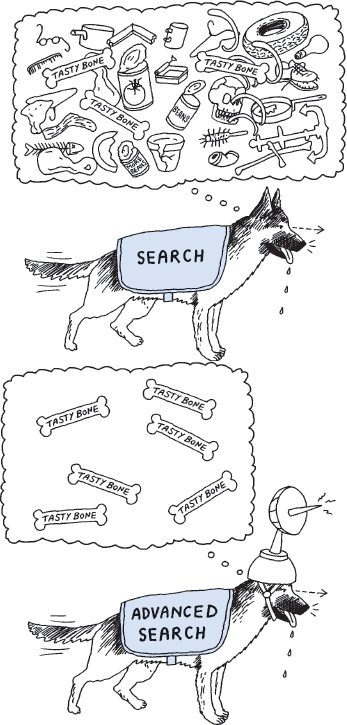Searching the World Wide Web
Printed Page 215
As we have noted, search engines are very popular information resources. A search engine is a specialized online program that continually visits Web pages and indexes what is found. When you enter a search term, the engine searches millions of Web pages to find the best matches for the term.29 Results are sorted in an effort to make them more useful. Some engines organize the results by listing them according to specific criteria—such as how frequently your search term is used, how often a search term of more than one word occurs together, or whether a search term appears in the title or near the top of a page.30 Other engines list sites based on how many other sites link to them. But beware—a search engine may prioritize sponsored sites. If so, carefully consider the sponsor’s credibility. You may also want to try more than one search engine.

Which search engine is best for you? Try several and compare their features and functionality. You can also check online for reviews of engines that highlight key features and provide updates as more features become available. The most frequently used search engines are Google, Bing, and Yahoo!31
How can you improve the quality of your search? Here are a few suggestions:
- Use quotation marks around key phrases. If you are researching a proposed tax on soft drinks, searching for “soda tax” will focus your results on the proposed tax rather than sites dealing with soda or taxes more generally.
- Use precise search terms. For example, if you want to search for the health effects of a soda tax, search for “soda tax” and “health effects.” Use the same process to focus your search on economic effects or the constitutionality of such a tax.
- Use advanced search features. These features allow you to limit your search by date, language, country, or file format. You can also prioritize your search terms based on where they occur in the Web page. The safe search feature avoids sites with pornographic or explicit content.
- Use scholarly search features. Search engines such as Google Scholar and Microsoft Academic Search limit their results to information from scholarly sources. Some search results include full text articles. Tip: If there is a fee to access an article, copy down the citation. Your college librarian might be able to help you access the article for free.
A Web directory is a searchable index compiled by human editors who review Web sites and index them into subject categories and subcategories. Because editors read each page, evaluate its quality, and place it in an appropriate category, you are more likely to find quality sources with this resource. Search engines, on the other hand, can cover more Web sites than a human being could possibly cover in the same amount of time.32 Because search engines and Web directories have different strengths, it is helpful to use both in your research.
Your search can benefit by checking out two directories maintained by universities: ipl2 (Internet Public Library 2, www.ipl.org), which is hosted by colleges with information science programs and includes an “ask a librarian” feature, and Infomine (www.infomine.ucr.edu), which was built by university librarians and focuses on resources relevant to college students and faculty.